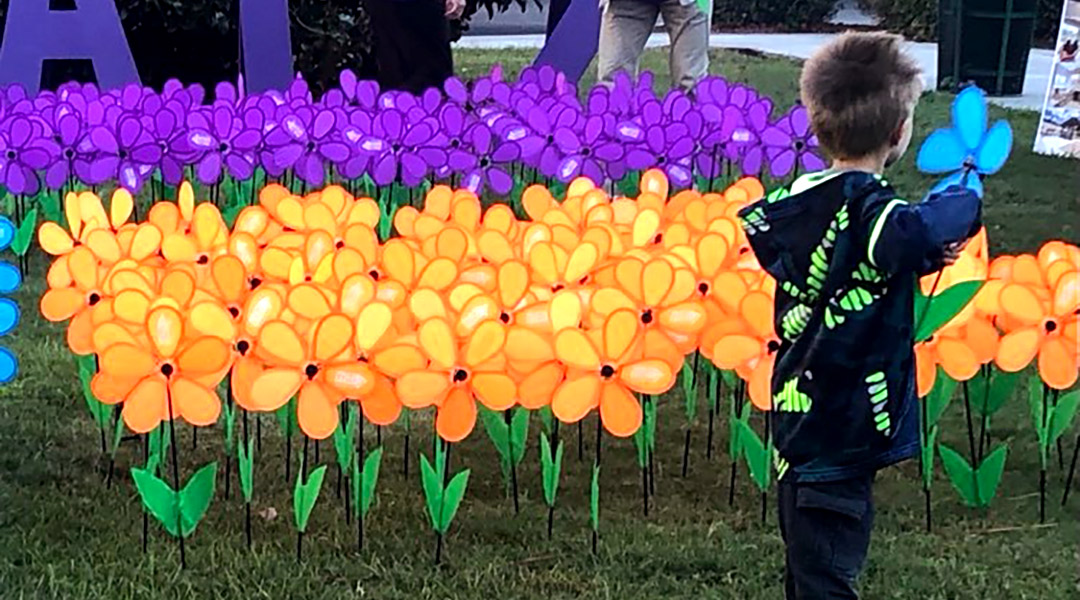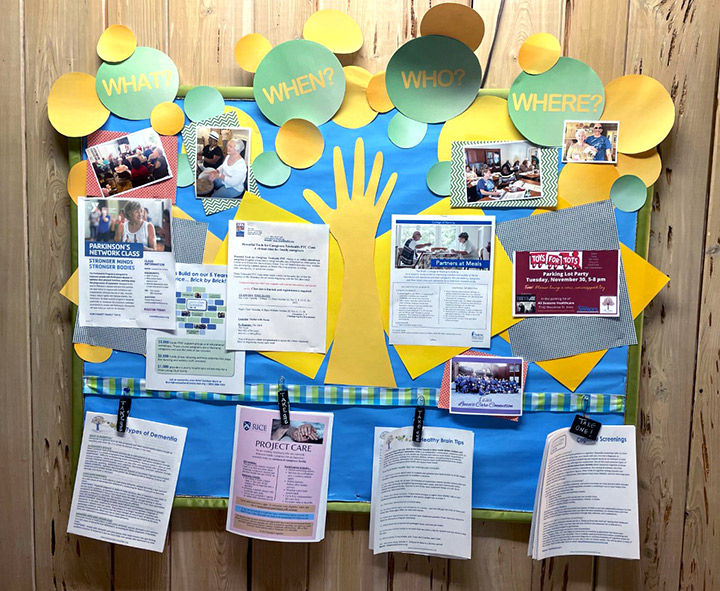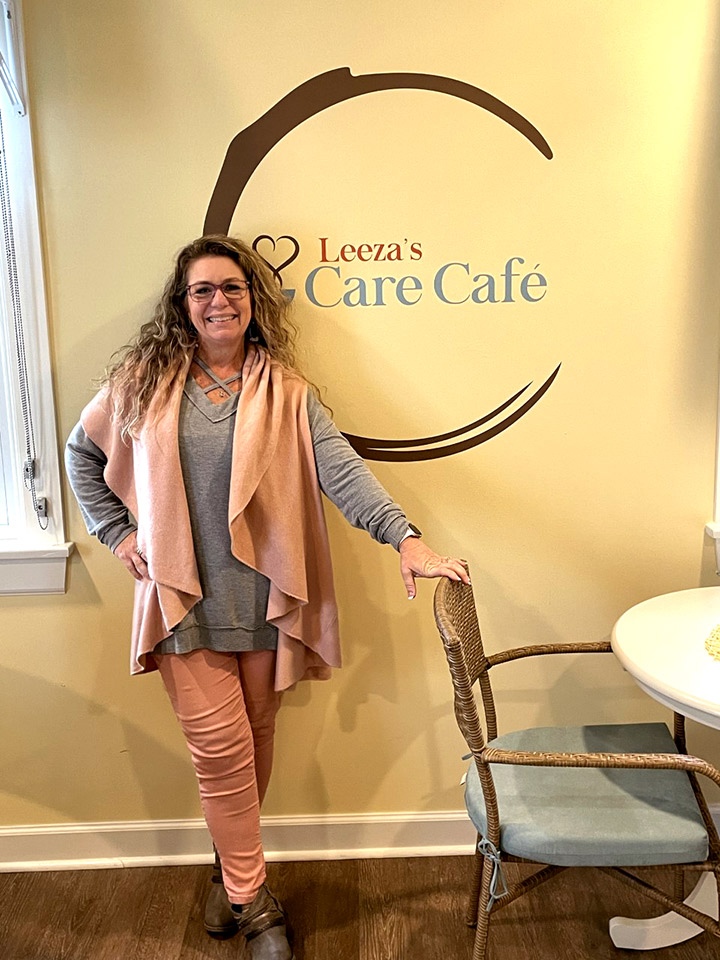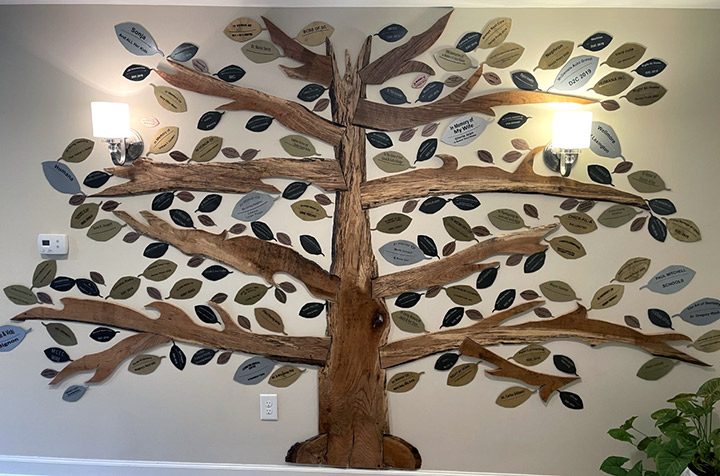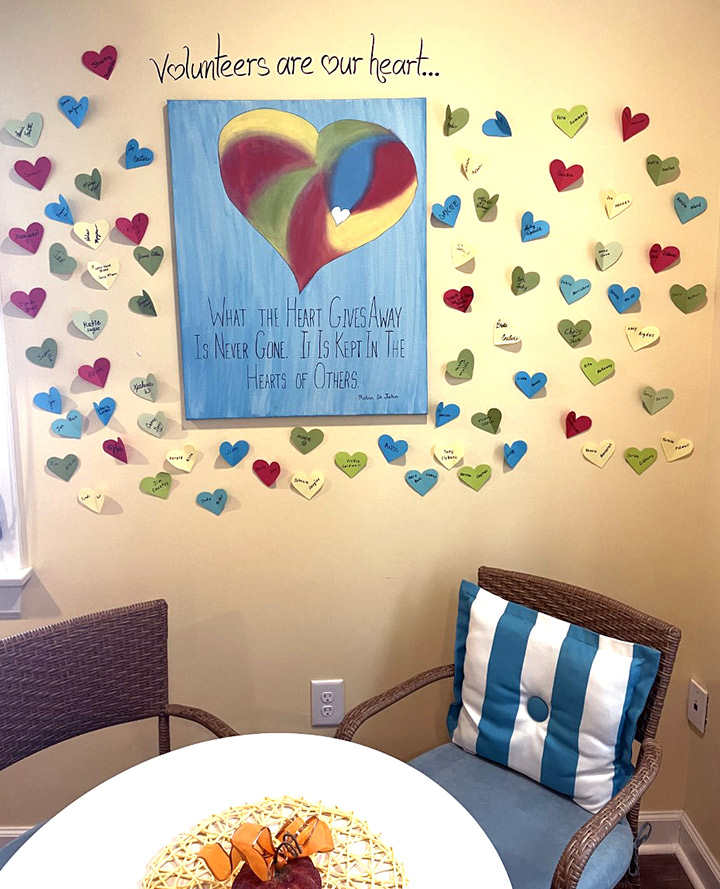A young boy stands in front of paper flowers at the Walk to End Alzheimers, each flower color representing the different reasons for people to join the walk, orange signifying advocacy and purple signifying loss. Photo courtesy of by Taylor Wilson
When Taylor Wilson and her family placed her grandmother in an Alzheimer’s care facility after three years of full-time nursing at home, Wilson weighed 108 pounds and was battling double pneumonia. She was only 28.
“I used to tell people it was like going through the looking glass,” Wilson said. “Every time I opened the door I was Alice in Wonderland just lost. I was playing whatever rules were set up that day to play, and it was incredibly exhausting.”
Despite the pressures and exhaustion of being a caregiver, Wilson still grieved for her family’s decision, something she says “you never get over,” but instead “live through.”
Now she helps other families as director of government affairs for the South Carolina Alzheimer’s Association.
As she and others mark National Caregivers Month in November, the Alzheimer’s Impact Movement says nearly 75% of Alzheimer’s and dementia caregivers are somewhat or very concerned about maintaining their own health, and over 1 in 3 dementia caregivers say their health has gotten worse due to their care responsibilities.
Alzheimer’s disease, the most common type of dementia, is a progressive disease beginning with mild memory loss and can lead to the inability to recognize family members and, in some cases, even aggression.
“I lost her. And she came back to me on a rotating basis every day,” said Wilson. “She was still there. I could still touch her. Her hands were still warm. I could still smell her and I could still hug her.”
Wilson said she felt as though her care was on a “timer” and she was constantly running out of time to complete tasks with her grandmother before losing lucidity or suffering what is known as “sundown syndrome.” According to the Mayo Clinic, sundown syndrome is a state of confusion that begins in the late afternoon and can last into the night, sometimes causing people to feel anxiety and aggression.
The day-to-day life of a caregiver is not a consistent routine, nor is it something that ever gets easier. Wilson recalled basic steps like sitting below her grandmother on the floor to “shrink herself” so as not to intimidate or frighten her grandmother, something that only worked on some occasions.
Other times, Wilson was not as lucky. She recalls a time in which the two shared a sentimental moment, only for her grandmother to quickly reach “sundown” and no longer remember who Wilson was or why she was hugging her.
Frightened, her grandmother hit her in the face, splitting Wilson’s lip.
While the life of a caregiver is full of empathy, forgiveness and understanding, frustration and anger towards their situation or the person they are caring for is common. Professional caregivers are trained to maintain empathy for those they are working with through a process known as learning to provide care that is “dementia capable.”
According to the Centers for Disease Control and Prevention, dementia capable care is the accommodation of needs for people experiencing memory loss and other physical, cognitive, and behavior symptoms seen in dementia patients.
“The knowledge and understanding and education that goes around the disease is instrumental in helping the caregiver know how to care for that person,” said Marti Colucci, the managing director of Leeza’s Care Connection, a nonprofit in Columbia.
Leeza’s Care Connection is a caregiving facility that offers free virtual and in-person services, including support groups, education classes and other respite opportunities for family caregivers in need of assistance, aid or encouragement.
Caring for the caregiver can mean better outcomes for the care receiver. At Leeza’s Care Connection, it is a central core belief that no one should walk the caregiving path alone. By providing coping strategies and connecting caregivers, the organization reminds caregivers that they “should not have to give up on their lives because you’re caring for someone you love.”
“Whether it’s meals, whether it’s daily care, we just do what we feel like we’re supposed to do and don’t think of ourselves as caregivers, until maybe we hit a point where we are burned out,” said Colucci.
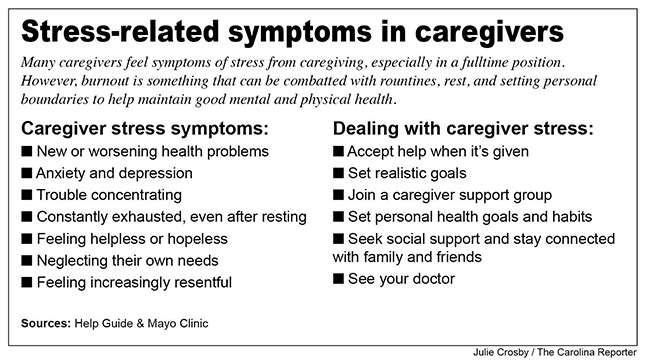
Lily Averkamp, an intern who helps with projects and special events at Leeza’s Care Connection, described burnout in caregivers as “heartbreaking.”
“The hardest part is when they call and they have absolutely no idea what to do,” said Averkamp. “Most of the time people are at their breaking point when they call. They’re lucky if they knew to call earlier.”
“One thing that I’m really involved in is our group called the Silver Linings Club,” said Ginny Wright, another intern at Leeza’s Care Connection. Respite groups like the Silver Linings Club are a chance for caregivers to resume their daily lives and are essential facets of many caregiver support facilities.
“Caregivers will bring their loved one to us for a few hours and we’ll do different cognitive activities with their loved one,” said Wright. “Then the caregiver can go and have a few hours to themself to just get things done, have a moment to breathe.”
The Alzheimer’s Association also offers a voucher of up to $750 for families to allow for their loved one to have another caregiver accompany them while they take care of their own daily tasks and responsibilities.
During National Family Caregivers Month, Wilson challenges people to get creative with their gratitude for caregivers, encouraging them to take the extra step into action.
“Take care of a caregiver,” Wilson said. “Give them a break. Don’t just thank them because at the end, thanking them, while it will make them feel wonderful, will not help them or prevent their burnout.”
This bulletin board hangs at Leeza’s Care Connection as a way to bring together the volunteers who work for the nonprofit. Photos by Alex Jones
Marti Colucci, the managing director at the Columbia Leeza’s Care Connection location, has been with the organization for over six years.
Sponsors of Leeza’s Care Connection can add a leaf to this tree to honor people in their lives who are connected to caregivers. The tree was made out of the wood from a tree that fell on the facility nine months after opening.
The importance of volunteers is highlighted at Leeza’s Care Connection on a wall in the nonprofit’s office space.
ABOUT THE JOURNALISTS
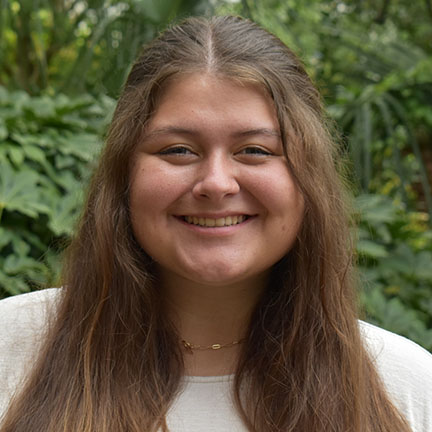
Julie Crosby
Julie Crosby is a fourth year multimedia journalism student from Charleston, South Carolina. As a former South Carolina State House intern, Crosby is particularly invested in writing stories that combine her passion for politics and education. She hopes to tell the stories of educators who are advocating for continued policy improvement for students in South Carolina. In her free time, Crosby enjoys reading and spending time with family and friends.
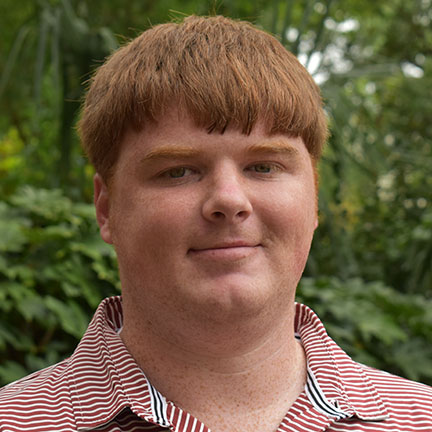
Alex Jones
Alex Jones is a senior multimedia journalism student from Hampton, South Carolina. After he graduates from the University of South Carolina in December, Jones aspires to become a sports writer covering any college sport. Jones has always enjoyed watching sports, and he also played three sports while he was in high school. During the past two summers, Jones has interned with the Hampton County Guardian covering sports and also freelancing on other stories about the county. In his free time, he enjoys spending time with his family and friends and traveling to see different places.
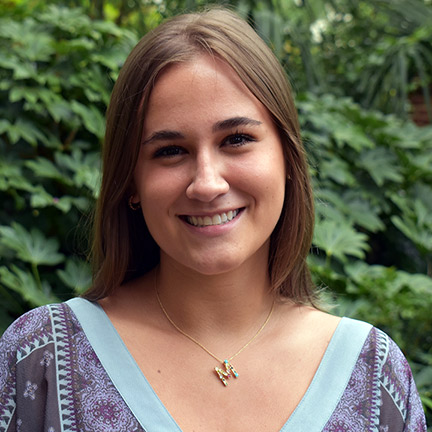
Meghan Hurley
Meghan Hurley is an aspiring multimedia journalist in her senior year from Raleigh, North Carolina. As a young girl, she established an unwavering passion for storytelling, especially for the underdog. Her passion has translated into a general life approach of empathy, and patience, but more importantly, resilience. She depends on her love for human connection to aid her creative approach as she strives to bring a modern twist to her craft. Hurley’s personal work highlights her innate ability to tether thoughts to reality as she dives into discussions of mental health and relationships through an imaginative lens.

